Mar 31, 2020
Mar 28, 2020
Mar 27, 2020
Man booked for selling gutkha amid lockdown
The Pimpri-Chinchwad police, on Wednesday night, booked a man for being in possession of gutkha (tobacco) in Nigdi in order to sell it while a nation-wide lockdown is in place.
The man has been identified as Mehboob Hussain Karval, 24, a resident of Ota Scheme in Rajnagar, Nigdi. Karval was roaming around on a TVS Jupiter at 2.30 pm, according to the police.
On Wednesday, a team of two officers of the crime branch, and anti-narcotics cell officials were in the area. The police seized gutkha worth Rs 16,452 from him. He intended to sell it even though the order of Pimpri Chinchwad police commissioner does not permit it, said police.
Karval was among the 76 people who faced action under Section 188 of Indian Penal Code (IPC) in Pimpri-Chinchwad on Wednesday for violating lockdown rules, said police.
A case under Sections 188, 272 (adulteration of food or drink intended for sale), 273 (sale of noxious food or drink), 328 (causing hurt by means of poison, etc., with intent to commit an offence) of IPC along with Sections 2(a), 26(2)(i), 26(2)(iv) of Food Safety and Standards Act, 2006 has been registered against the man at Nigdi police station.
Mar 25, 2020
Mar 24, 2020
Mar 20, 2020
Coronavirus outbreak: How safe is your food
01/5Can coronavirus spread through food

With the outbreak of the COVID19, strict instructions of staying quarantined have been passed in most countries around the world. The toll of confirmed cases is rising every minute in affected countries and at this rate, it can also go out of control if proper measures are not taken in time. The situation is becoming severe as we see it and if anything that has become more important than eating is staying clean and washing your hands and face as much as possible throughout the day. Coronavirus is declared a pandemic by the WHO and this has given rise to the pre-existent agitation among people all over the world. For the very same reason, it is important to keep the right information in hand and not let hoax news create any more panic than what already exists.
02/5False news
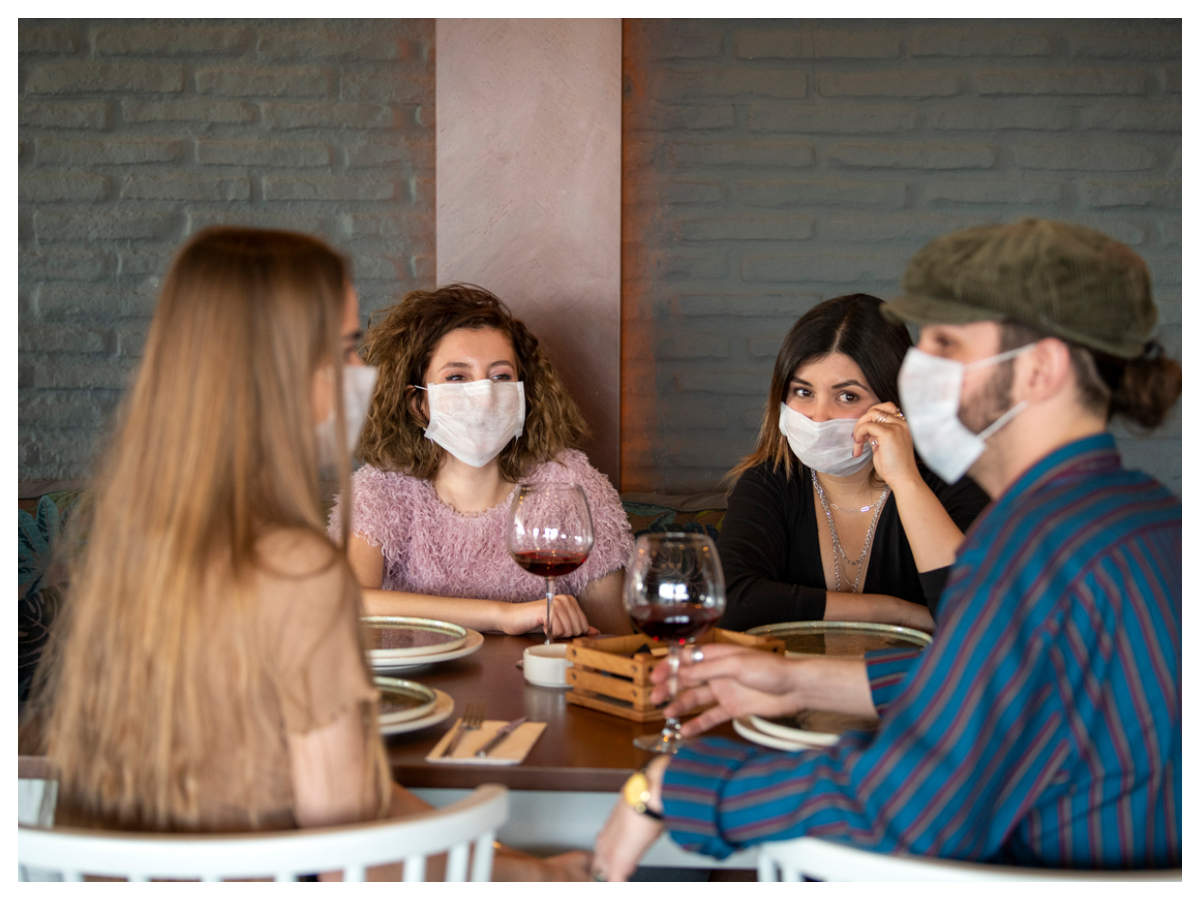
One most common false information that is being spread on a large scale is that the virus is capable of spreading through food. The researchers at European Centre for Disease prevention and Control (ECDC) said that even though the virus is likely to have spread from an animal source, it is now spreading through human contact by respiratory droplets that are either sneezed, coughed or exhaled by people.
03/5Food is safe
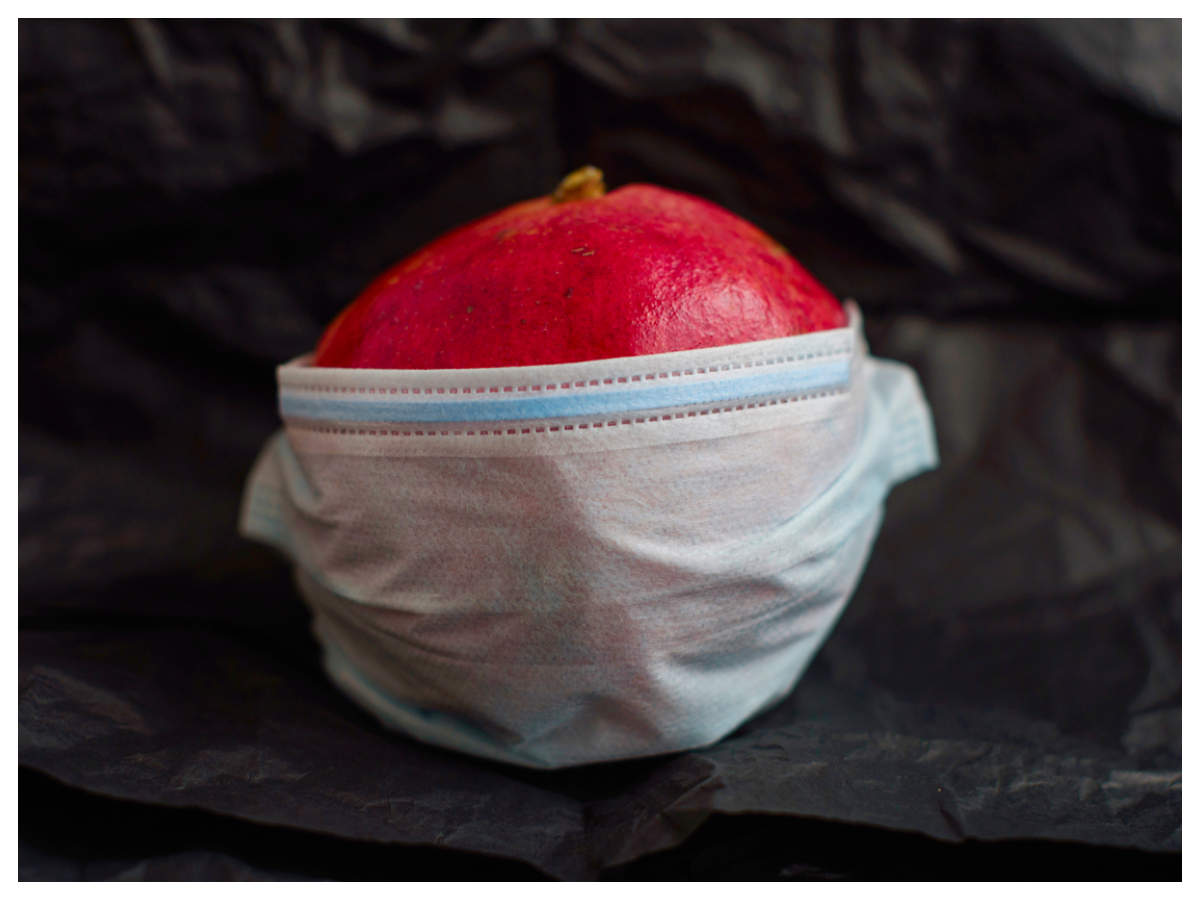
So, unless someone who has been infected by the virus, sneezes, exhales or has any form of droplet transmission through food or otherwise within one-metre distance, both you and your food are safe. Droplet transmission can also take place by sharing the infected person’s used cutlery like spoons, cups, plates, etc. The most common gateway for these droplets to enter your body is through your eyes, mouth and nose which is why the hygiene instructions mark as washing hands regularly and keeping hands off your face are prioritized by the World Health Organisation.
04/5Is meat safe?
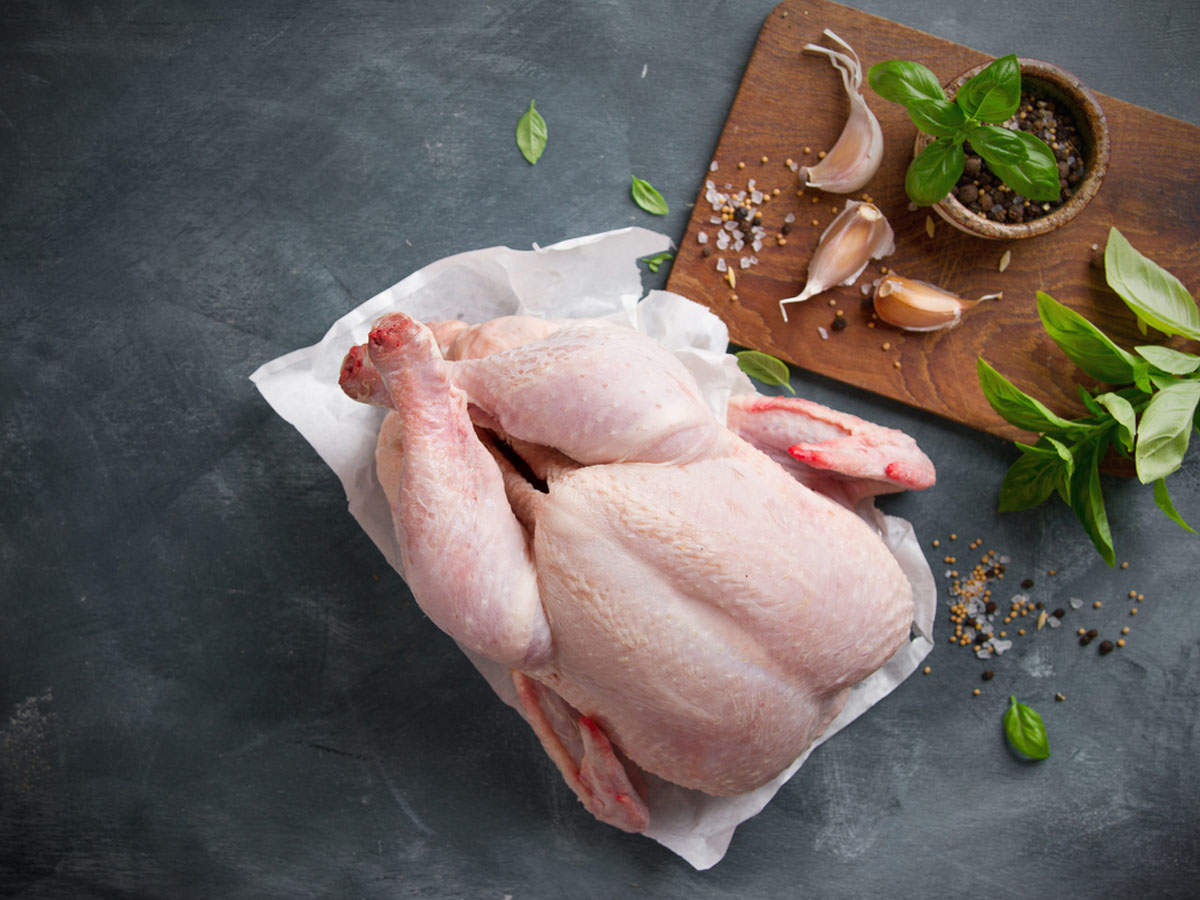
Being around the person who is infected with COVID19 can potentially increase your chances of getting the virus. But any information that claims that the virus can be spread through any food items, especially poultry, stand false at this moment. The director of the All India Institute of Medical Sciences (AIIMS) has also talked about the consumption of poultry and has made it clear that if made under clean and hygienic conditions, poultry has no harm in the ongoing coronavirus. "As a common healthcare precaution, all kinds of meat should be thoroughly washed and properly cooked," he added. Many organisations and research centres such as the European Food Safety Authority have been working closely on this matter and have also claimed that currently there is no evidence that food is one of the likely sources of transmitting the coronavirus.
05/5Important measures to stay safer
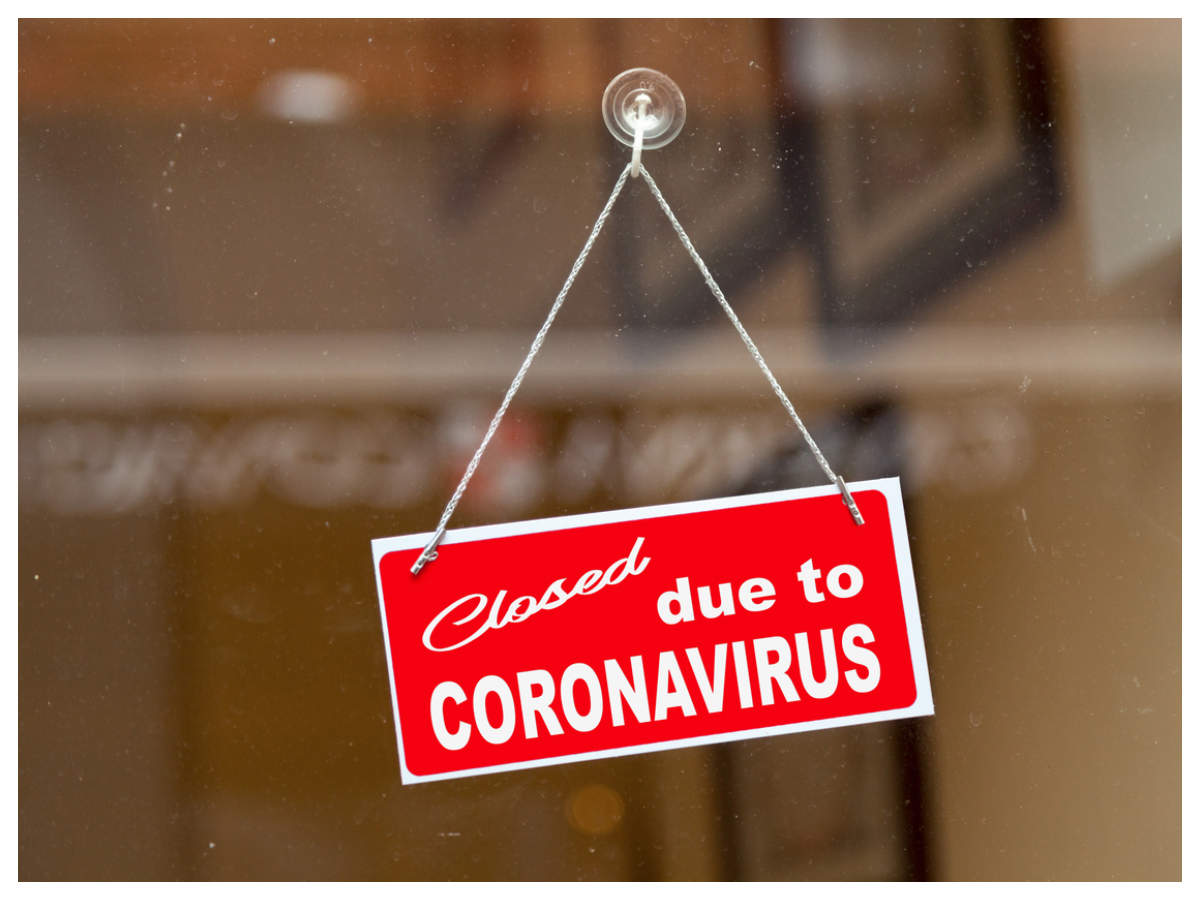
It is advised by experts to not eat food from outside and cook at home as much as possible because, at the end of the day, you do not know by whom your food is prepared and under which circumstances. It is also advised to avoid going out to parties, playdates, sleepovers, coffee shops, etc. Staying indoors is one of the easiest ways we can prevent ourselves from getting the virus and spreading it.
Mar 19, 2020
Mar 18, 2020
E.coli lurking in B'luru street food, hotels no better
Cooked food also contaminated; study flags govt apathy
Favourite chicken momos and pani puri are teeming with harmful bacteria, including E.coli.
Indian street food vendors near the holy Ganges river. According to legends, Varanasi city was founded by God Shiva about 5000 years ago.
Bengaluru,
Your favourite chicken momos and pani puri are teeming with harmful bacteria, including E.coli.
As per a study, many popular snacks sold by street vendors in Bengaluru failed to clear safety tests, with lab reports of 50 samples showing the presence of harmful bacteria.
The results highlight the crisis in the unorganised sector that has faced government apathy for decades, while hotels — which are equally unhygienic — have remained impenetrable, thanks to a legal wrangle.
The study was the result of a collaboration between Mount Carmel Autonomous College and Ramaiah Advanced Testing Laboratory which highlighted the need for positive government intervention instead of periodical crackdown.
One sample each was collected as per FSSAI guidelines from 50 vendors spread across Koramangala, Vijayanagar, RT Nagar, Palace Guttahalli, Rajajingar, Wilson Garden, Shanti Nagar, Thippasandra, Vasanthnagar, Vyalikaval, Sudhama Nagar and Indiranagar.
Of the 25 samples of bhel puri, pani puri, masala puri and sukha puri, 14 had E.coli. Even cooked food like chicken was found to be contaminated. Of the six samples of chicken kebab and chicken momo, three had E.coli. The bacteria was also found in three of the five samosa samples.
Jubin Joseph, COO at Ramaiah Lab, said the presence of E.coli indicates water contamination. “The source is likely to be the water supplied to street vendors or the raw materials for the food they prepare, especially vegetables and chicken,” he said.
The public trusts darshinis and star hotels as there is no one testing their food. A senior official in the Food Safety and Standards Authority of India (FSSAI) said they have not checked the kitchens nor tested food from restaurants ever since the hotel owners’ association managed to get a stay from the court.
Process to register under Food Safety Act is all Greek to vendors
LUDHIANA: Vendors are finding it difficult to get themselves registered under the Food Safety and Standards Act, 2006.
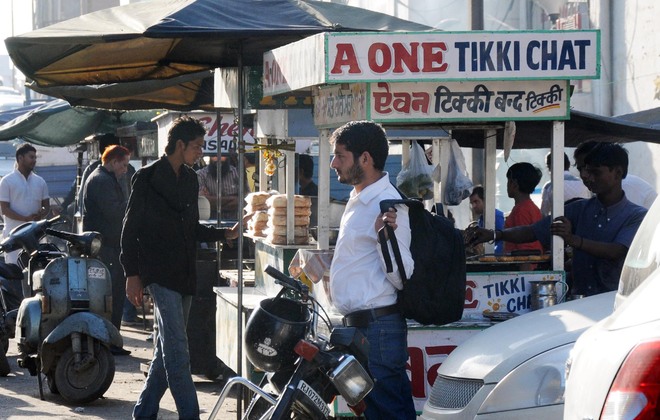
It is mandatory for all those who are in food business, including owners of canteens and hotels, to obtain a licence under the Food Safety and Standards Act, 2006.
Ludhiana, March 21
Vendors are finding it difficult to get themselves registered under the Food Safety and Standards Act, 2006. The Suvidha Centre, which was to facilitate the vendors, has left them disappointed.
It is mandatory for all those who are in food business, including owners of canteens and hotels, to obtain a licence under the Food Safety and Standards Act, 2006.
Parkash, a migrant from Bihar and a roadside vendor, who has a tikki rehri at Chaura Bazar, said:
“I went to the office and they gave me a form, but I was unable to fill it. The form is lying with me. I will ask somebody to help me fill in the form and then submit it,” he said.
Roshan, who runs a juice corner near the bus stand, said: “I know getting registered is mandatory, but the government should simplify things for those who are unable to understand the complexities of paper work. I only know how to write my name and operating computer is beyond my ability. Nobody at the window is ready to fill in my form and I did not want to waste money on agents. A help desk should be set up at such centres to facilitate people like us,” he lamented.
District Health Officer Dr Abnash Kumar said the facility to help people fill in forms for getting registered under the Act was yet to start at the Suvidha Centre.
About registration
Petty retailers and hawkers with an annual turnover of Rs 12 lakh should get registered by paying the annual fee of Rs 100. Large scale units involved in dairy, vegetable oil processing, meat processing, food processing and exports whose turnover is above Rs 12 lakh should obtain licences. The registration is renewed every year.
Mar 17, 2020
Mar 16, 2020
Subscribe to:
Comments (Atom)











































